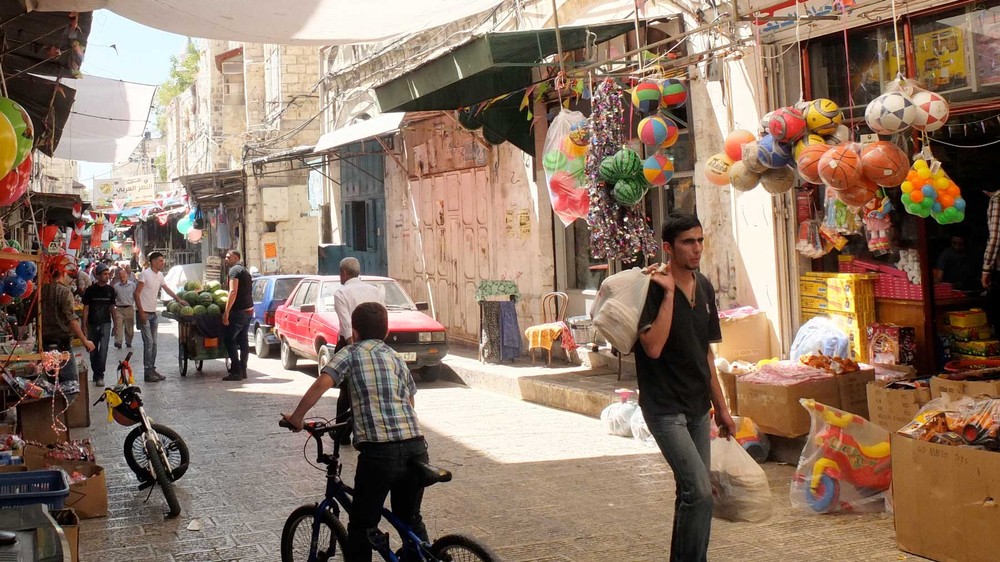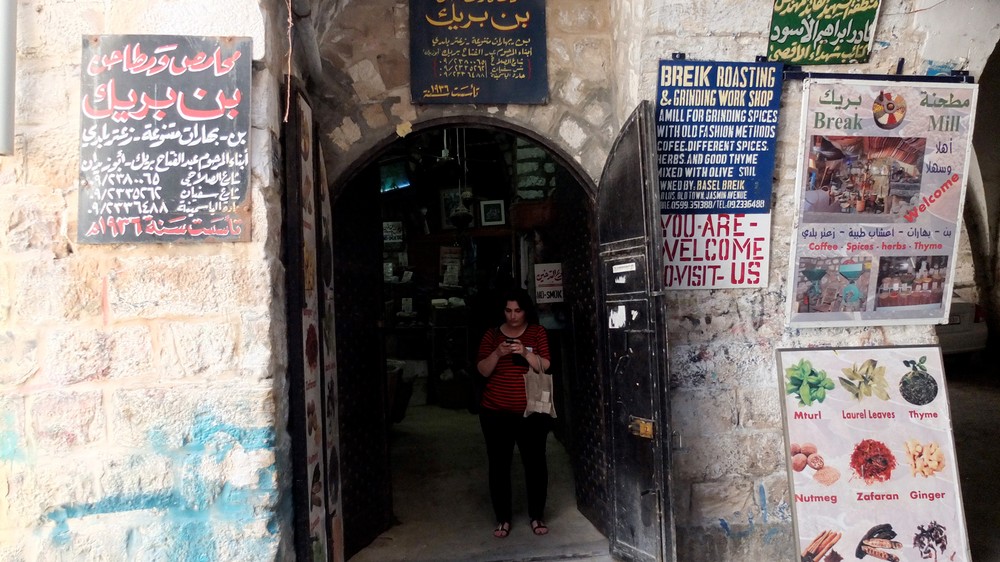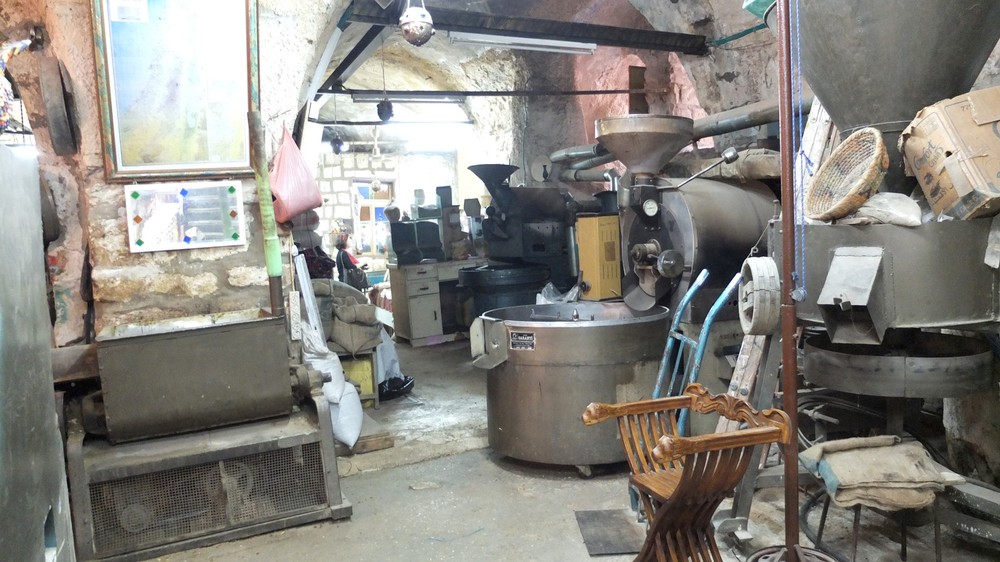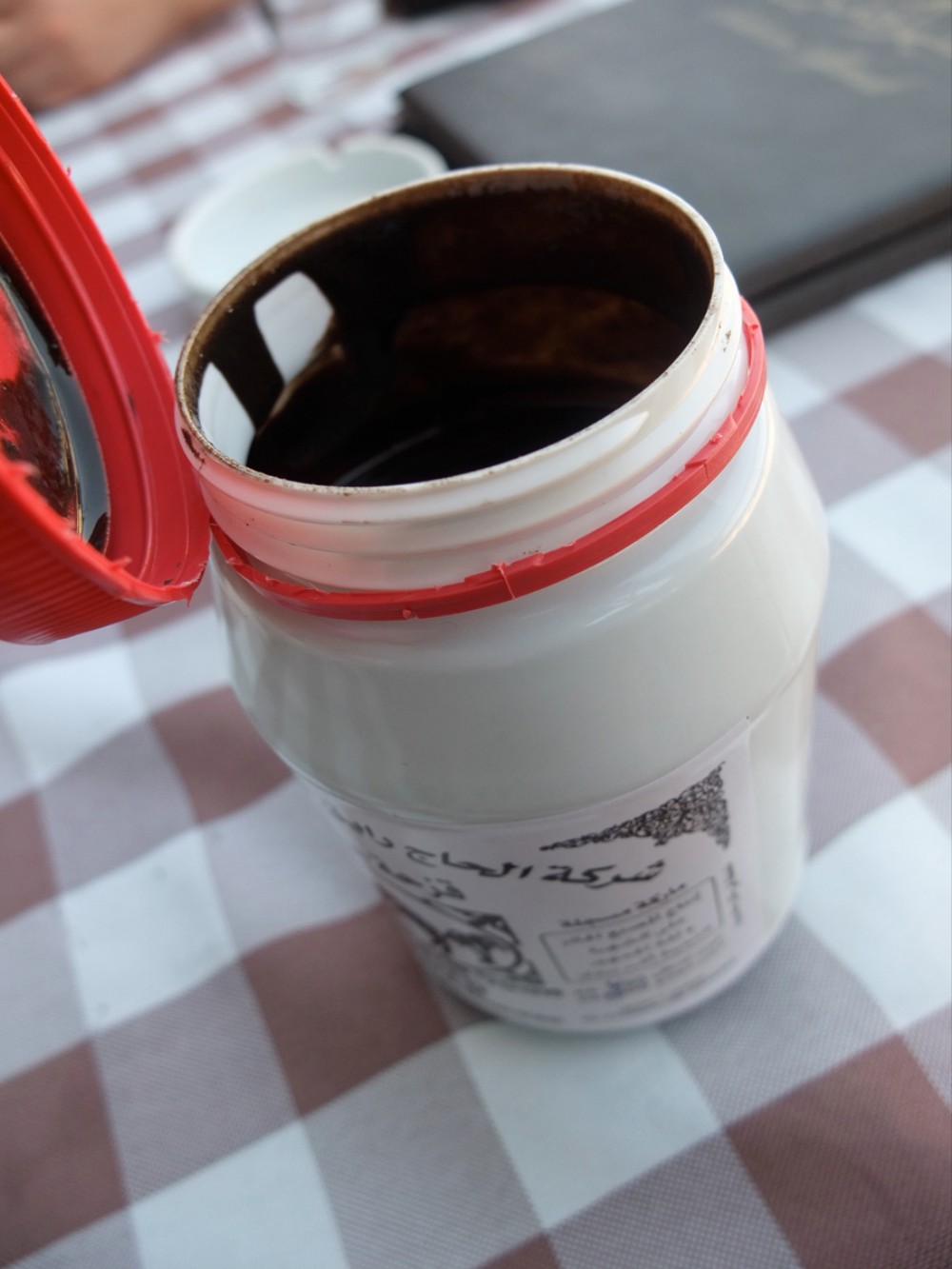When I came to the West Bank, I didn’t know that I would leave with an obsession for a rare, ink-black paste known as qizha.
Last year’s publication of The Gaza Kitchen introduced many readers to the flavorful roasted “red tahini” used in Gaza, but almost nothing has been written about Nablus’ mysterious “black tahini,” or qizha (‘izha in local accent) made from ground nigella seeds, poetically called hubbat al-baraka, or “seeds of blessing” in Arabic. Versions of and recipes for “black tahini” using black sesame seeds exist, but this is something altogether different. With an appearance like jet-black molasses, qizha is more intensely flavored than the beige tahini most of us are familiar with. There are onion-y and minty accents, as well as a certain intriguing sweetness.
Videos by VICE

The streets of Nablus.
kanafeh
Nablus is known as being the West Bank’s gastronomic capital. Apart from having serious cred as the birthplace of , a semolina- and cheese-based dessert popular around the Middle East, Nablus’ location on the site of Ottoman trading routes means it has long been a part of the circulation of fine spices, ingredients, and culinary ideas coming from places like Damascus and Baghdad. Regionally, Nablus is also known as a tahini powerhouse, producing some of the finest in the Levant, including the lesser-known qizha.

The Breik mill in Nablus.
qizha
I stumbled upon while visiting the nearly 80-year-old Breik tahini mill in Nablus’ old city on a culinary research trip around the West Bank. I came to the city to check out Bait al-Karama, a women’s center located in a beautiful old building, which offers (among other things) cooking classes and gastronomic tours of Nablus. My class was followed by a stop at Al-Aqsa sweets for the justifiably famous kanafeh, and a ramble around town that led to my encounter with qizha.

Inside the mill.
In subsequent conversations with some of the world’s leading Middle Eastern food scholars, it became clear that I’d come across something really special. None except for the great Claudia Roden (of course) had heard of it—actually, she told me she has a jar in her cupboard—but even she conceded that a friend brought it to her, and prior to that she’d never heard of or tasted it. I’d have a jar in my cupboard too, if it weren’t for EasyJet baggage restrictions and my spine-tingling fear of trying to bring too many conspicuously Palestinian products through security at Ben Gurion Airport, let alone a huge jar of thick, black liquid.

When I asked the folks at the Breik mill if qizha is unique to Palestine, I was met with a resounding “Ma ba’rif!,” which means “I don’t know,” but here seemed to maybe include a dash of “I don’t care, either.” All evidence, however, points to this being the case, though it may also be true that it’s penetrated elsewhere via Palestinian diaspora communities.
It seems that the beguiling substance—which is also sold in a more solid form that looks like black mole paste—is used primarily in desserts. At the incredible Ramallah specialty foods and spice store Saleh Khalaf, I sampled an outstanding black halvah—richer and yet somehow more nuanced than its tan full-sesame counterpart. The most common qizha recipe is siniyyat al-qizha, a type of small cake-like treat cut into a diamond pattern and adorned with almonds, not unlike regional sweets such as basbousa and nammoura.
Savory possibilities seem endless and intriguing, but qizha doesn’t play a role in any of the heavy-hitters of the Palestinian repertoire. Black hummus seems like a logical starting point, but the thought of substituting qizha for regular tahini in dishes like kefta b’tahineh—a sort of casserole of ground meat and potatoes doused in tahini—has me salivating the most powerful and blackest of salivas.
After leaving Nablus, it became sort of a game for me to search for qizha in markets in other regional cities, more often than not in vain. Attempts to locate qizha in both London and New York have proved fruitless, too. At this point, the stuff has become a minor personal obsession, no doubt enhanced by its extreme elusiveness. The closest thing I have now is a bar of black nigella seed-infused olive oil soap I got my mom as a present from Nablus. And if I don’t find any real qizha soon, I might have to eat it.
More
From VICE
-

Isabel Pavia/Getty Images -

Family Lifestyle/Getty Images -

Penpak Ngamsathain/Getty Images

